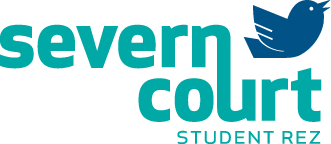Balancing the demands of college life can feel like running a marathon. With assignments, projects, and exams constantly piling up, many students struggle to keep up, leading to stress and burnout. Juggling multiple courses, part-time work, and a social life can be overwhelming, making it difficult to maintain focus and productivity.
However, with the right strategies, you can take control of your schedule and create a balance that supports both academic success and personal well-being. Effective time management, organization, and a supportive study environment—such as fully furnished student housing near Fleming College provided by Severn Court Student Residence—can make a significant difference in managing college challenges and reducing stress.
Importance of balancing college workload
- Academic success: Effectively balancing your college workload ensures you meet deadlines while still having time for extracurricular activities. A well-structured schedule also allows you to participate in study groups, workshops, and networking opportunities, all of which can enrich your learning experience and contribute to your academic and personal growth.
- Personal growth: Finding the right balance fosters personal growth. Engaging in activities beyond academics, such as student clubs, sports, or volunteering, helps you build leadership skills and form meaningful relationships. When you manage your workload efficiently, you create opportunities to meet new people and build a support system, making college life more enjoyable and fulfilling.
- Lifelong benefits: The time management and organizational skills you develop during college will benefit you throughout your career and personal life. Learning how to prioritize, set goals, and meet deadlines prepares you for the demands of the professional world. By mastering these skills early, you create a foundation for lifelong success.
How to balance your college workload and thrive
Create a master schedule
A well-organized schedule is essential for staying on top of your workload. Start by gathering all relevant academic information, including assignment deadlines, exam dates, and class schedules. Use a planner or digital calendar to visualize your commitments and set reminders for important tasks. Allocating specific time slots for studying, leisure, and self-care ensures a balanced routine that prevents last-minute stress.
Focus on what truly matters
Not all tasks are equally important, so learning how to prioritize is crucial. Categorize your tasks into high-priority (urgent and important), medium-priority (important but not urgent), and low-priority (tasks that can be postponed). Regularly reassess your priorities as deadlines shift and new tasks arise. By focusing on what truly matters, you can maximize your efficiency and avoid unnecessary stress.
Break the task into smaller, achievable steps
Divide complex tasks into smaller, more manageable steps, each with its deadline. For example, if you have a research paper due, break it down into stages like topic selection, research, outlining, drafting, and editing. Completing small tasks provides a sense of accomplishment and keeps you motivated.
Use effective time management techniques
Effective time management allows you to work smarter, not harder. Some proven techniques include:
- Eisenhower matrix: Categorize tasks based on urgency and importance to determine what requires immediate attention.
- Time blocking: Dedicate specific blocks of time to different activities, such as studying, socializing, and relaxation. By using these strategies, you can enhance productivity and make the most of your study sessions.
Optimize your study environment
Your study environment significantly impacts your focus and productivity. Choose a quiet, well-lit space free from distractions. If you live in student housing near Fleming College, take advantage of dedicated study areas. Keep your workspace organized, and consider using noise-cancelling headphones or instrumental music to enhance concentration.
Maintain a healthy lifestyle
A well-balanced lifestyle supports academic success. Ensure you get enough sleep, eat nutritious meals, and engage in regular physical activity. Exercise helps reduce stress and improves cognitive function, making it easier to concentrate and retain information. Additionally, practicing mindfulness or meditation can help you manage academic pressure and maintain a positive mindset.
Celebrate your wins
Acknowledge your achievements, no matter how small. Completing assignments, meeting deadlines, and balancing multiple responsibilities is no small feat. Take a moment to celebrate each milestone, whether it’s by treating yourself to a favourite meal, taking a break, or sharing your successes with friends and family. Positive reinforcement boosts motivation and encourages you to stay committed to your goals.
Conclusion
With careful planning and preparation, you can successfully balance your college workload while creating a fulfilling academic experience. Experimenting with different time management techniques, optimizing your study environment, and prioritizing self-care can help you stay productive and reduce stress.
Your living environment also plays a crucial role in maintaining this balance. At Severn Court Student Residence, we provide a comfortable, organized space designed to support your academic success. Our housing offers privacy, convenience, and access to essential amenities, creating an ideal atmosphere for studying, collaborating with peers, and unwinding after a long day. With flexible lease options and all-inclusive rates, we make student living hassle-free—allowing you to focus on what truly matters: your education and personal growth.






